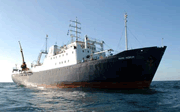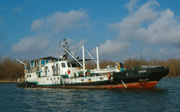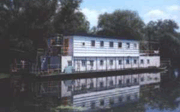This site is no longer updated. To open the new site please click here: geoecomar.ro
 Romana
Romana Romana
Romana

 find more
find more  find more
find more  find more
find more

REX-CO2 will increase the technical feasibility and economic competitiveness of high-potential depleted hydrocarbon fields earmarked for CO2 storage.
Contracting Authority: UEFISCDI
Contract number: 122/1.09.2019
Project manager: Dr. Alexandra-Constanța DUDU
Documents:
Existing oil and gas industry installations which cover large parts of the potential CCS chain are already in place, and an increasing number of reservoirs have come to the end of their production lifetime and are earmarked as major targets for initiating large-scale CCUS operations (DOE, 2017). The existing wells in these assets present both opportunity and challenges. Substantial savings could be realized by re-using these wells as CO2 injectors, monitoring wells, or for water production (pressure management). On the other hand, the existing well infrastructure poses a risk as a potential CO2 or brine leakage pathway (Watson and Bachu, 2009). In this project, we take a fresh look at this problem and provide a novel solution. The re-use of wells is the inverse of the problem of identifying defective wells. The process of certifying well integrity can also be used to identify wells suitable for continued use in a CO2-rich environment. We develop a qualification process that will simultaneously save CO2 storage projects money and time by identifying existing infrastructure that is seif to re-use, while determining which wells must be remediated to ensure long-term storage.
Re-use can benefit projects in all geological settings but may be particularly crucial for off-shore environments, such as the North Sea or the Gulf of Mexico, where well development costs could otherwise be prohibitive. Developing a procedure and tools for evaluating the reuse potential of existing hydrocarbon fields and wells will require a dedicated investigation encompassing the interrelated technical, environmental, economic and social aspects. Currently no such publicly available tool exists. For this project, we conduct the necessary research to develop a dedicated well-screening tool for Reusing EXisting Wells for CO2 storage operations (REX-CO2).
The results of REX-CO2 are expected to facilitate large-scale CCUS implementation by providing a tool to evaluate and rank the CO2 reuse potential of hydrocarbon fields. The developed technology is not limited to a particular sector of CO2 storage but will accelerate all types of CCS. Key results will include: